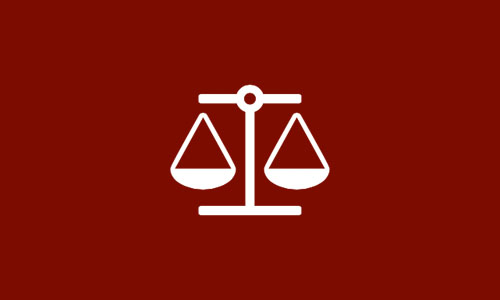Procedures
Finance Committee
September 25, 2015
Charge: Provide financial oversight for the organization in the areas of budgeting and financial planning, financial reporting, and the creation and monitoring of internal controls and accountability policies.
Optimal number of members: at least 2 from the membership
Responsibilities:
- Set and recommend a yearly budget for the various functions and activities of MassCUE
- Oversee financial activities
- Create and monitor internal controls and accountability procedures
Goals:
Budgeting and Financial Planning
Effective finance committees fully engage in an annualized budgeting process in cooperation with the Executive Director and Bookkeeper. Develop an annual operating budget with staff and committee chairs.
- Approve the budget and recommend approval by the board of directors.
- Monitor adherence to the budget.
- Set and recommend long-range financial goals along with funding strategies to achieve them.
- Develop and recommend multi-year operating budgets that integrate strategic plan objectives and initiatives.
- Present and recommend all financial goals and proposals to the board of directors for approval.
- In addition to developing and recommending an annual budget, the committee should also set and recommend long-term financial goals. These goals might include, for example, the creation of a working capital or cash reserve fund and the creation of a fund for maintaining or replacing equipment.
- The finance committee will work with the staff to determine the financial implications of the strategic plan and will plot them into a multi-year organizational budget that will financially support the implementation of the strategies.
Investments
- Draft an investment policy detailing the objectives of the investment portfolio, guidelines on the asset allocation of the portfolio based on a predetermined level of risk tolerance, authorizations for executing transactions, disposition of earned income, etc.
- Ensure provisions of the policy are followed.
- Review the policy at least annually and update if necessary.
- Hire and evaluate the investment managers/advisors.
- Even if MassCUE does not have enough cash to support a full blown investment portfolio, it should manage its cash to optimize earned revenue. If MassCUE has excess operating cash, the finance committee, with the Executive Director’s input, may consider drafting guidelines for putting the excess cash in low–risk, short-term vehicles. These should be designed to maximize earned revenue from existing cash without interfering with operating cash flow needs, i.e., purchasing short-term CDs with staggered maturity dates, or establishing a sweep account arrangement wherein excess cash is swept into a higher-yield vehicle each night. Once they have decided on a strategy, they should submit a recommendation to the board of directors for approval.
Reporting
MassCUE requires staff to provide highly contextual reports clearly communicating the organization’s financial and cash position, its adherence to the budget, its allocation of resources toward the accomplishment of its mission, and its support of any donor-imposed restrictions on contributions. Having a predetermined list of reporting expectations permits staff to allocate enough time to produce accurate, high quality reports and not be caught off guard by ad hoc requests. In addition, these reports should help to focus the board’s discussion about expected outcomes and potential strategies for overcoming setbacks or changes in the financial environment.
- Develop and recommend useful and readable report formats with Executive Director.
- Work with Executive Director to develop a list of desired reports noting the level of detail, frequency, deadlines, and recipients of these reports.
- Work with Executive Director to understand the implications of the reports.
- Present the financial reports to the full board for approval.
Internal Controls and Accountability Policies
Although the entire board carries fiduciary responsibility for the organization, the finance committee serves a leadership role in this area, making sure appropriate internal control procedures for all financial transactions are documented in a manual and followed by staff.
- Create, approve, and update (as necessary) policies that help ensure the assets of the organization are protected.
- Ensure policies and procedures for financial transactions are documented in a manual, and the manual is reviewed annually, and updated as necessary.
- Ensure approved financial policies and procedures are being followed.
- Play a role in determining and updating bank account signatories as well as overseeing all legal and governmental filing deadlines are met.
Other Policies
The Finance committee should work with the Executive Director to insure compliance and/or developing other policies that further serve to protect the organization and manage its exposure to risk. These include establishing and recommending policies surrounding:
- Personnel policies
- Executive compensation packages (in the absence of a separate human resources committee)
- Long-term contracts or leases
- Loans or lines of credit
- Internet use and computer security
- Capital purchases
- Check writing policy: On a motion duly made and seconded, the Board unanimously voted to approve: A bill over 5,000 must be approved by the Treasurer or President before release of funds. June 6 2015
- Disposition of donated stock
- Insurance requirements and reviews
- Record retention policy – has been approved by the Board
- Gift acceptance
Audits
- Recruit and select the auditor.
- Work with the Executive Director, accountant and auditors to answer all questions that fall under the committee’s scope.
- Review the draft audit and 990 as presented by the auditor.
- Present the audit report to the full board of directors (if the auditor does not do this).
- Review the management recommendation letter (SAS112) from the auditor and ensure follow up on any issues mentioned.
Annotated Timeline: (date, action, responsibility)
An annualized committee task list is a useful tool for organizing the committee’s work.
| Calendar / Timeframe | Tasks |
|---|---|
| August | Review and continue to oversee financial ebb and flow in collaboration with Conference Committee. |
| November | Review the financial policies of the organization. Research and write additional ones and/or revise existing ones. Recommend them to the Board for approval. Work with Bylaws, Policies and Procedures Committee and all Committee Chairs to review and update Committee Procedures. |
| December | Collaborate with Development and Outreach Committee on revenue raising |
| February | Review governmental and legal filing deadlines for compliance |
| March | Coordinate a budget workshop to assist committee chairs in completing their committee budget for the following year |
| April | Be the “advance” team for the next year’s operating budget, through reviewing, and bringing forth recommendations to the Board for approval Provide the budget to all committee chairs for final review |
| May | Regularly review employee compensation rates and recommend revisions for Board approval Present the budget to the board of directors for approval |
| June | Work with the Executive Director in completing the Audit process Review internal report deadlines for compliance Insure that the approved budget is entered into the financial software for the upcoming year |
 Print this page
Print this page









